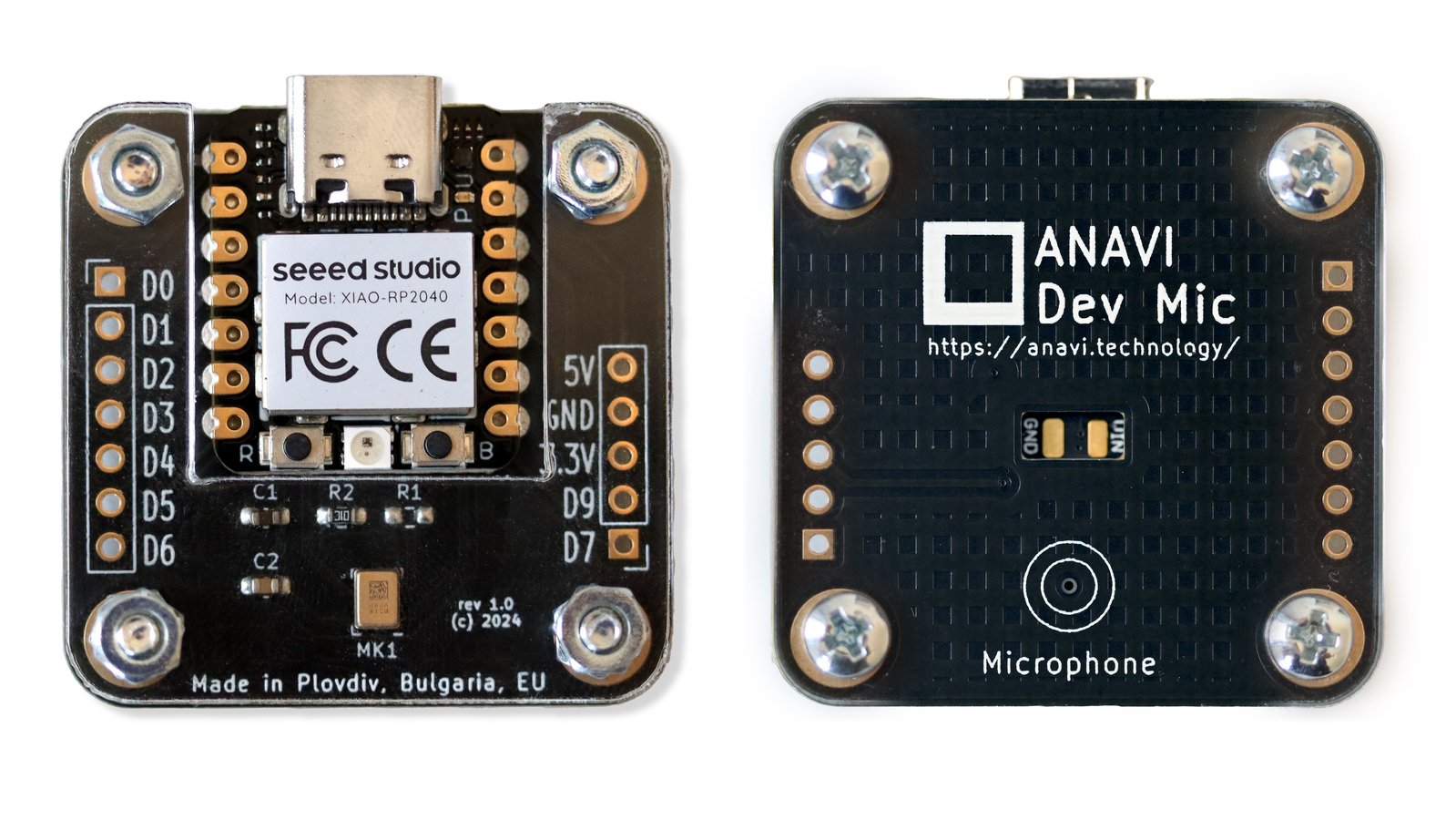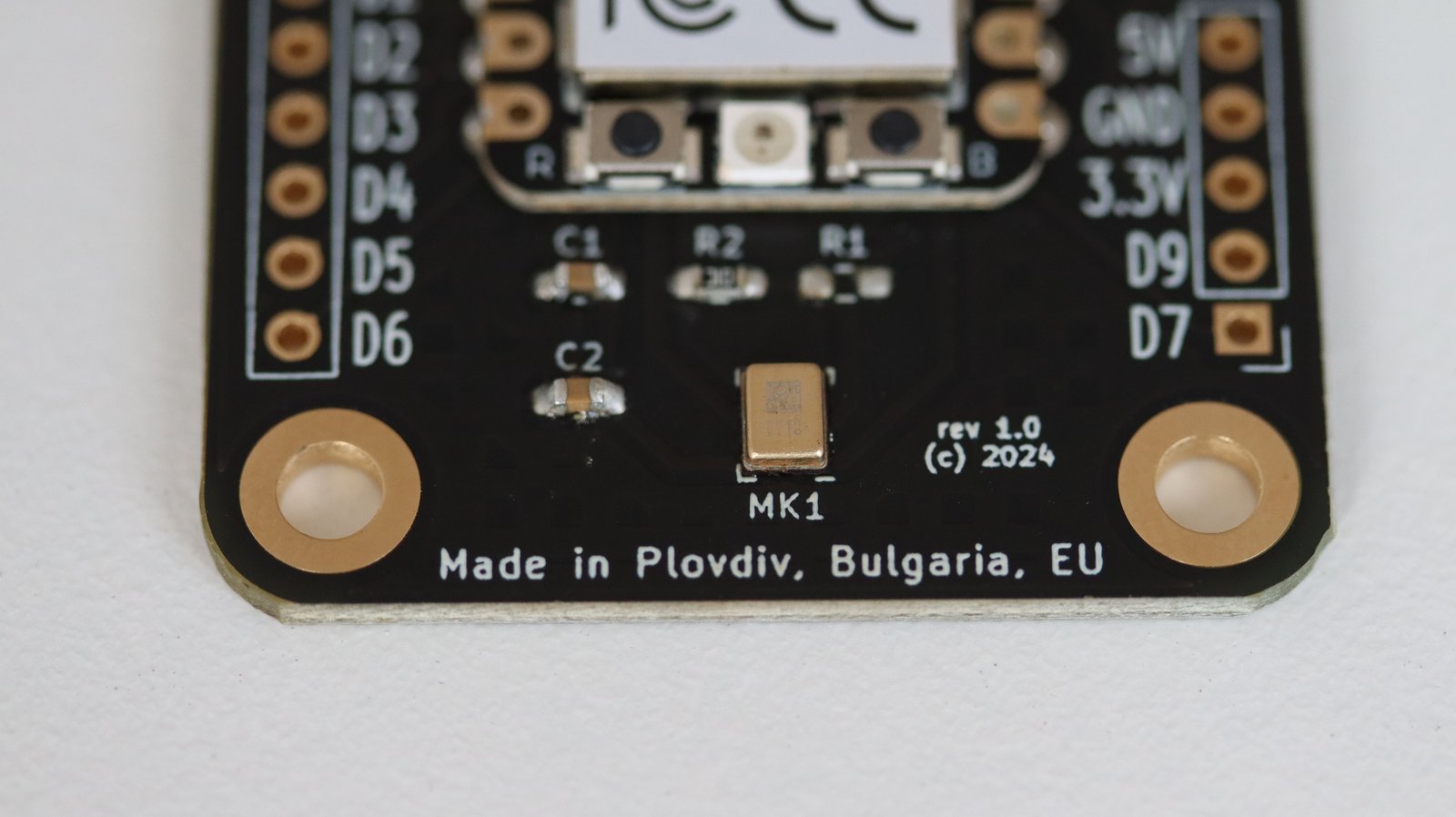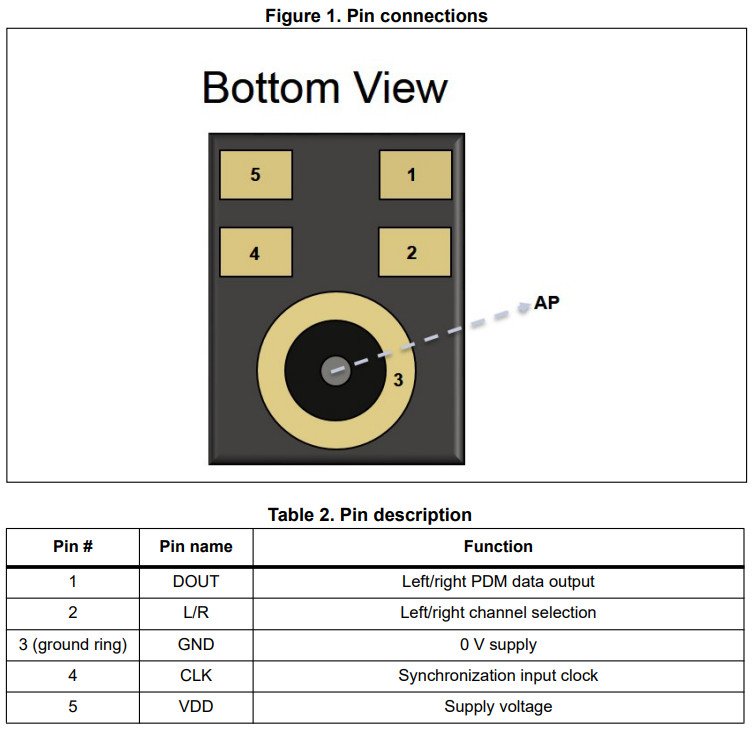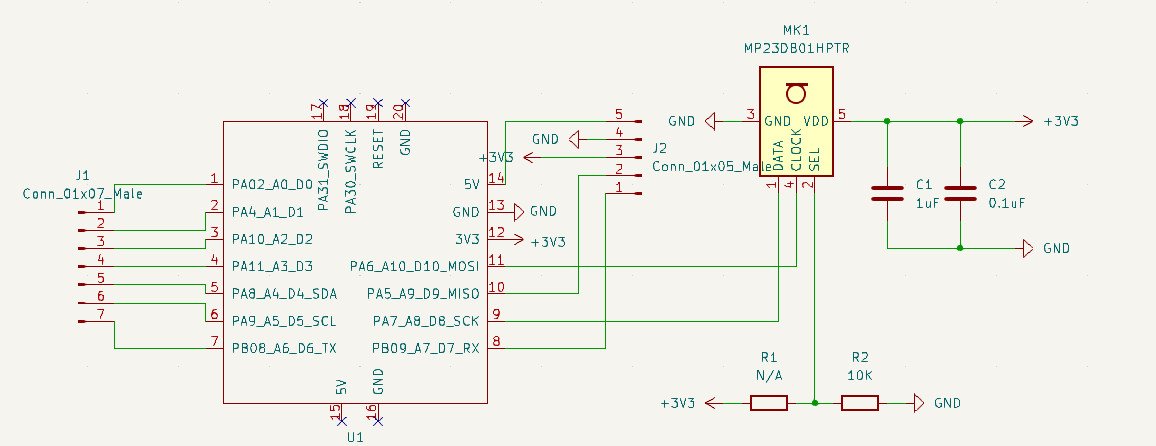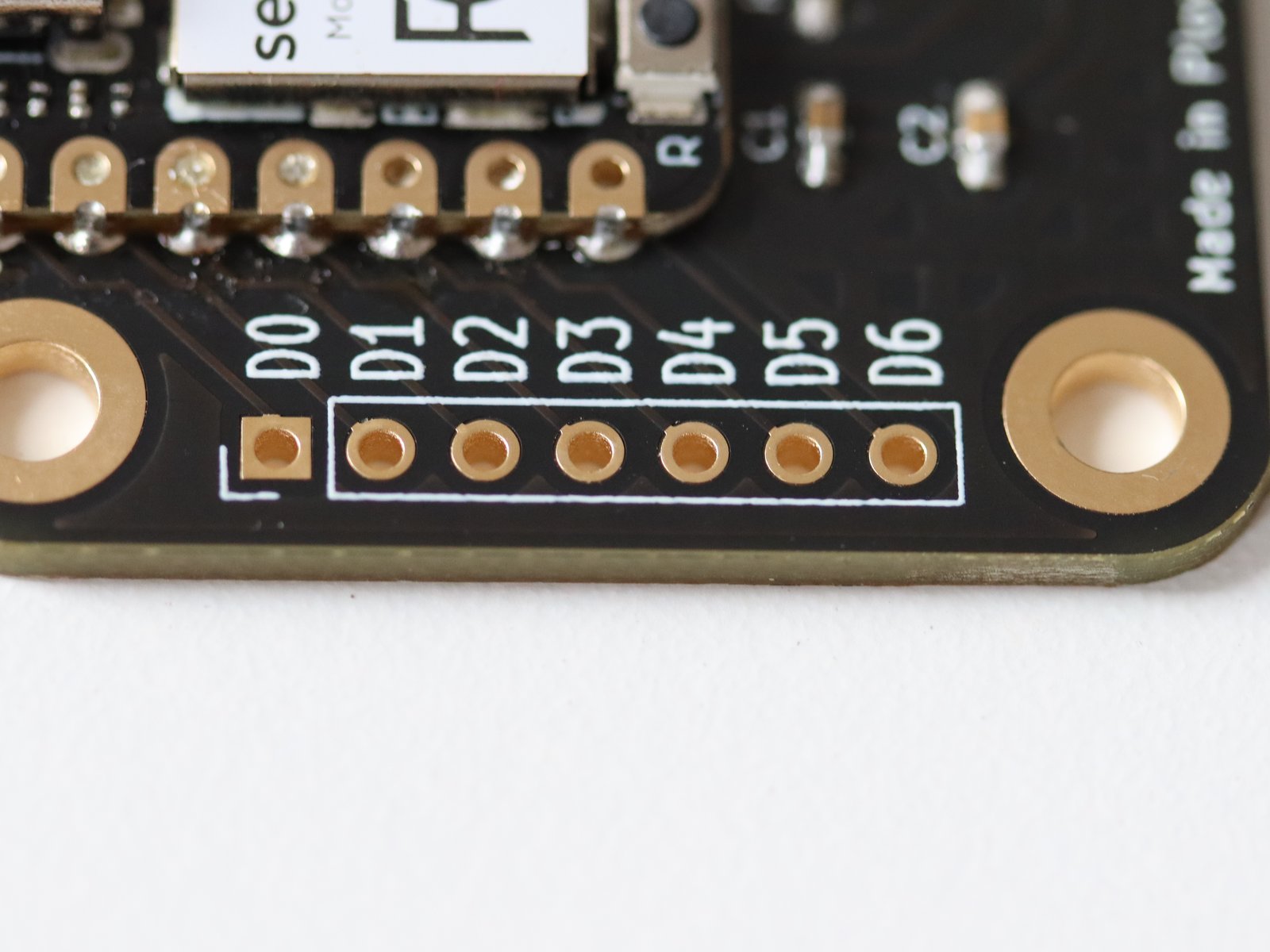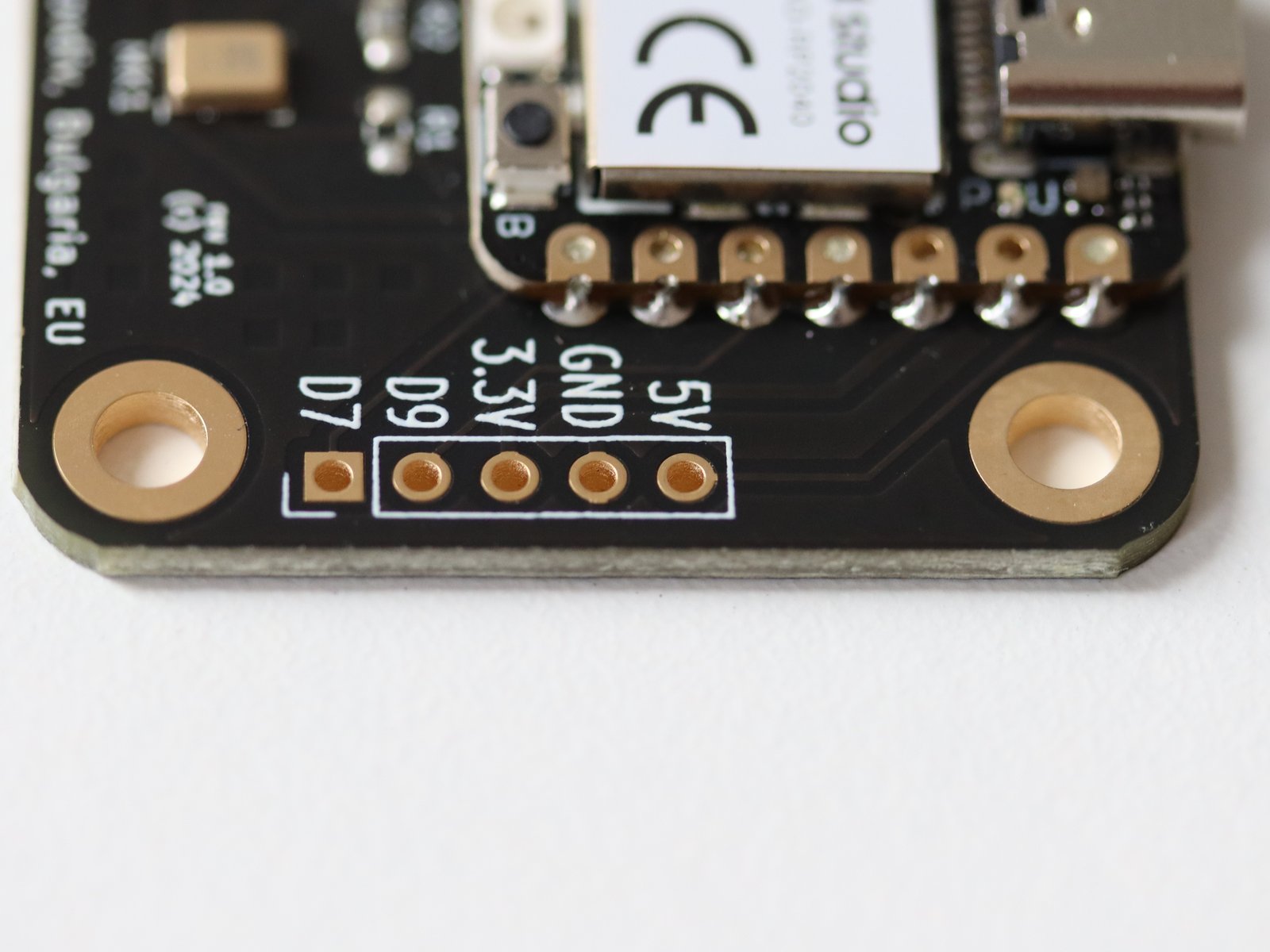ANAVI Dev Mic is an entirely open source project. It combines the open source software/firmware "Microphone Library for Pico" with an open source hardware printed circuit board (PCB). It was designed using KiCad, a free and open-source electronic design automation (EDA) software suite. KiCad is popular among both hobbyists and professional engineers for its flexibility and comprehensive toolset, supporting various operating systems such as Windows, macOS, and GNU/Linux distributions.
The complete KiCad project, including all schematics for the ANAVI Dev Mic, is available on GitHub. The PCB is built around the STMicroelectronics MP23DB01HP PDM MEMS (Micro Electro-Mechanical System) omnidirectional digital microphone and the Seeed Studio XIAO module, which uses the Raspberry Pi RP2040 microcontroller.
STMicroelectronics designed the MP23DB01HP for a wide range of applications, including smartphones, laptops, wearable devices, video cameras, and even anti-theft systems.
This ultra-compact, low-power microphone features a capacitive sensing element and has five pins arranged in the following configuration:
- Pin 1 (DOUT) for PDM data output is connected to D8 of the XIAO RP2040.
- Pin 4 (CLK) for the input clock synchronization is connected to D10.
One key feature of the MP23DB01HP is its option for stereo configuration. The L/R digital pad allows users to select the DOUT signal pattern by connecting the L/R pin to either Vdd or GND. On the ANAVI Dev Mic, the L/R pin is connected to ground via a 10K ohm resistor (R2). However, the PCB includes unpopulated pads for resistor R1, enabling advanced users to connect the L/R pin to 3.3 V and experiment further with the configuration. Explore details about the L/R channel selection in chapter 4.1 of the MP23DB01HP datasheet.
Additionally, all available GPIO pins from the XIAO RP2040 module are accessible on the PCB of ANAVI Dev Mic. There are nine GPIOs in total (D0, D1, D2, D3, D4, D5, D6, D7, and D9), along with convenient access to 5 V, 3.3 V, and GND. Advanced users can utilize these pins to add various buttons (for example, a mute button), LEDs, and sensors, expanding the functionality of the ANAVI Dev Mic for diverse applications.
There’s still time to join and support our crowdfunding campaign for ANAVI Dev Mic! Be part of the community driving innovation with open-source hardware. Your contribution makes a real difference so please help us bring this project to life!
